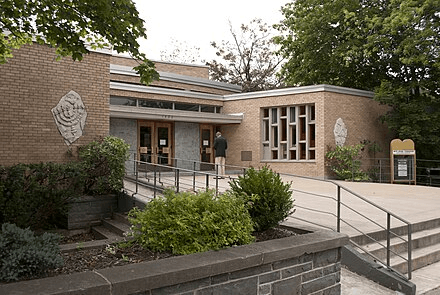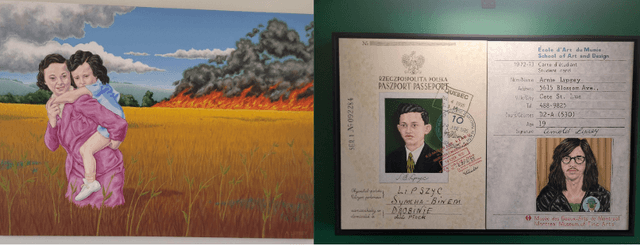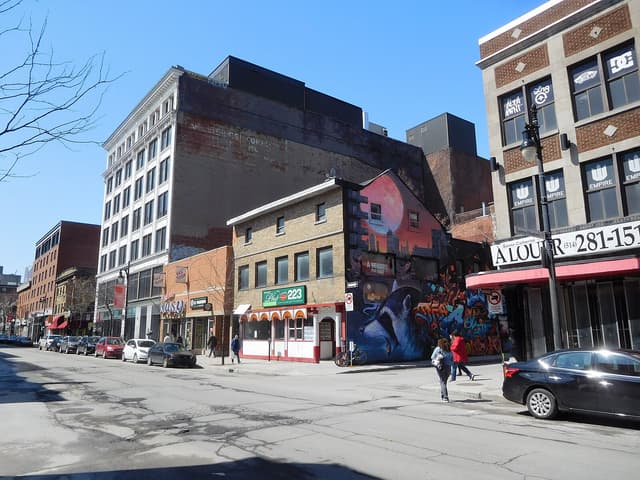There’s much debate in the Montreal Jewish community about whether to send young Jews to secular or religious institutions. The community has had to deal with the concerns of providing a quality education to future generations while also preserving cultural values and religious tradition. Zev Moses, the founder and director of the Museum of Jewish Montreal, described the issue of education as “the most contentious issue in [Jewish] Montreal’s history in the early 20th century.” This urgency was warranted, considering that the educational system was largely designed by Catholics and Protestants.
Publicly funded schools in Quebec were historically either Catholic or Protestant, and Jews were forbidden from attending the largely-francophone Catholic schools. It was only in the 1960s, when Jews established positions of authority on the Montreal school board, and were able to fully articulate their educational concerns and values. In 2000, a non-denominational public school system was finally created in Quebec through the adoption Bill 118.
A whole generation of Jews grew up attending Protestant schools like Baron Byng. This historic school on Saint-Urbain Street led daily mandatory Christian prayer; however, its teaching style was more secular. This appealed to the Jewish families of Montreal’s Plateau, who sent their children to Baron Byng en masse.
Though a handful of Jewish educational institutions were cropping up at the time, the issue of funding was a continual roadblock. According to Zev Moses, to combat this, the “Downtowner Jewish population” proposed the use of tax dollars to fund public Jewish schools; however, the motion was blocked at the privy council.
The lack of a clear religious and educational structure for Jewish Montrealers was disconcerting for many Jewish families, who removed their kids from day schools in the 1990s and 2000s and sent them to private, secular schools instead. This trend can be seen today, as parents like Lindsay Hollinger, a Montreal native, opt for French schooling instead of parochial alternatives.
While Hollinger sent her daughter and son to public school until grade three, she realized that the French curriculum was not strong enough and expressed that “a lot of [Jews] stick to the Anglophone community because they don’t feel comfortable here.” To counter this trend, she enrolled them in a French private school, which she describes as an “American-feeling, progressive, dynamic, interdisciplinary school.” Hollinger also sends her kids to a weekly after-school program run by Chabad of Montreal to provide them with a Jewish education. Her son will become a bar mitzvah this year. He has no problem studying in a secular school and values being “the only Jew in [his] class because [he gets] to educate people.”
A growing number of Jewish day schools in the city now boast bilingual curricula, as per the provincial requirement, in addition to strong teaching of religious texts and the Hebrew language. The Bronfman Jewish Education Centre (BJEC) is one such institution, priding itself on “experiential education” programming, as well as upholding Quebecois culture in the classroom. While most Jewish educational spaces within Montreal have been relatively separate from mainstream Quebecois society, BJEC and other schools aim to integrate the two spheres, fostering a new and well-rounded generation of Jews.
École Maïmonide is an exemplary private school option offering a fully francophone Sephardic Jewish education, with locations in Saint-Laurent and Côte-Saint-Luc. Started by North African Jews in 1969, Maïmonide is unique for its emphasis on French education as well as its equally rich Jewish curriculum spanning from primary to secondary schooling.
While Montreal’s Jewish schools began with limited support at the turn of the century, it’s exciting to see institutions partially supported by the secular government embracing Jewish learning and cultural identity.
Powered by Froala Editor






